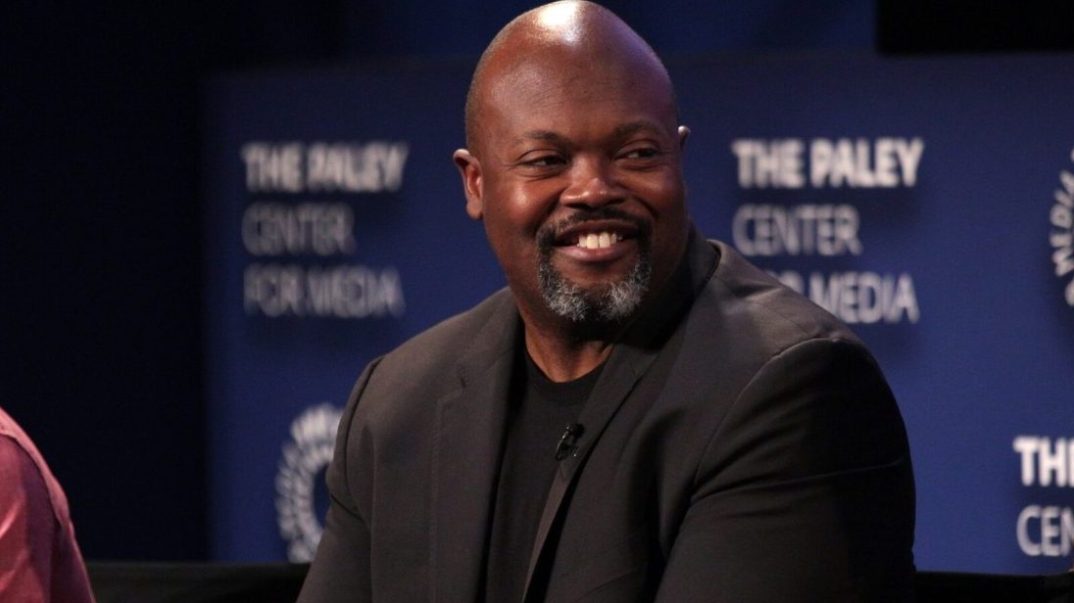EXCLUSIVE: Cheo Coker on how Hollywood will change after ‘Black Panther’
The writer, director, and executive producer of Netflix's Luke Cage praises Ryan Coogler and explains his approach to black superheroes.

Cheo Coker is the accomplished, writer, director, and executive producer of Netflix’s Luke Cage. Because of his impeccably diverse resume, Coker is keenly aware of the sudden increase in representations of African-Americans in comic series on both the big and small screens. While everyone’s interest has peeked, it doesn’t necessarily inform how Coker does his job on groundbreaking projects like Luke Cage.
TheGrio caught up with the celebrated show runner at the Paley Center in Beverly Hills to find out what he thinks about Black Panther, and why everything he does is inclusively Black.
“Blackness is a part of me period. It goes into everything that I do as a writer, as a producer,” said Coker. “We have to be excellent to even get this far, so what it’s about is showing the complexities of our people but doing so in a way that people who come from outside of our culture can have an understanding of what it is.”
Coker says his connection to his culture is home-grown, taking lessons imparted by the elders in his family.
“My grandfather was a Tuskegee Airman. He was a combat pilot. One thing he would say is that they knew they were making history because they were the first African -Americans to fly combat. Still, to this day, he’s one of 105 black men to have an aerial kill. But he also said that physics have no color. Of course, you’re making history up there, but don’t forget to fly the plane!”
READ MORE: Luke Cage’s hoodie worn in series is a nod to Trayvon Martin
According to Coker, the strength and power of projects like Luke Cage and Black Panther are based on how much they speak to the masses.
“What I call it is being ‘inclusively Black.’ For example, with albums like Stevie Wonder‘s Songs In The Key of Life or Miles Davis’ Kind of Blue, those are records that are so deeply a part of the African-American experience and yet, they came in such a way that everybody could understand them and relate to them and groove to them,” said Coker. “Even Thriller, you have the “Beat Its” and “Billy Jeans” that really resonated with the mainstream, but if you go to a Black barbecue, “PYT” is the song that’s playing.”
Even though Coker is working with themes and material that are familiar to us, he believes this practice doesn’t alienate him from a general audience at all. In fact, it brings us all closer together.
“That’s what you try to do with a show. You try to create something very specific to the Black experience, but in doing so, you’re reaching the mainstream because everybody looks to the Black audience to see what’s cool anyway. It balances everything out.”
Coker is indeed fully invested in Luke Cage, but he’s a huge fan of Black Panther and what it’s success means for the industry.
“We can finally realize our dreams the same way that any other filmmakers are able to,” said Coker. “We are able to see ourselves represented in our complexities, our beauty, and our glory. Honestly, none of it would mean anything if it wasn’t any good.”
READ MORE: Is ‘Luke Cage’ too black? Some white people think so
He also highlighted what Ryan Coogler was able to do with the film that hits theaters on February 16.
“I’m really proud of Ryan. He made a Ryan Coogler movie, but at the same time represented Marvel. It’s entertaining and has a message. It’s really about something and I think that will resonate,” he says.
Coker believes that the success of Black Panther has the potential to change Hollywood forever.
“The movie is incredible. It’s one of those things that hits the Marvel mark in terms of Wakanda being cool and vibranium and all the things I would be into as a kid going to the comic book store, but in terms of the blackness quotient, it hits on that level as well. It’s the perfect storm,” he says.
Could this lead to Hollywood making more films dedicated to the African-American experience? Coker says yes.
“We will see the Black audience seeing the film multiple times and that’s something Hollywood has not witnessed yet. When that translates to the box office, I think people are going to understand that maybe we need to be making more movies like this and make projects that are more inclusive. I hope it has a positive ripple effect on everything.”
